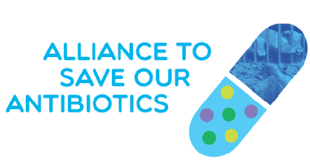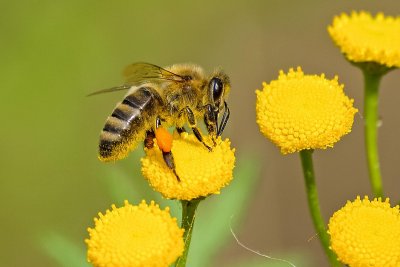US livestock receive more than five times as many antibiotics as British livestock
New data shows that US livestock received on average 5.4 times more antibiotics per animal in 2018 than their UK counterparts. In particular, US cattle received 8 to 9 times more antibiotics per animal than British cattle, which is probably due to the much more intensive conditions in which most US cattle are raised and their worse health and welfare.

The comparative data has been calculated in a new report by the Alliance to Save Our Antibiotics, using information contained in UK and US government reports, and also shows that in 2018 US pigs and poultry received twice as many antibiotics per animal as British pigs and poultry, and US turkeys received 9 times as many.
Cóilín Nunan of the Alliance said: “US farmers continue to massively overuse antibiotics despite increasing warnings about the threat this poses to human health. British consumers should be concerned if a UK-US trade deal results in increasing imports of US meat and dairy produced in this way, as we know that antibiotic-resistant bacteria can pass to humans through the food chain.”
The US ended its use of antibiotics as growth promoters in 2017, which contributed to a 33% fall in farm antibiotic use in that year. In 2018, however, US antibiotic use increased again by 9%, perhaps due to increased use of antibiotics for routine disease prevention. In comparison, British farmers have continued to cut their use, by 9% in 2018 compared with 2017, and by 50% compared with 2014.
At present the overwhelming majority of British imports of meat and dairy come from the EU, where antibiotic use in farming is generally significantly lower than in the US. The EU has decided to ban all preventative group treatments with antibiotics in January 2022, which is expected to help achieve further large reductions in European farm antibiotic use.
In contrast, the US strongly supports the use of preventative mass medication with antibiotics and has argued against the UK implementing EU regulations which go beyond minimum international food and farming standards.
Cóilín Nunan said: “The US is clear it wants to agree a trade deal with the UK based on minimum international animal-welfare and antibiotics standards. But if the UK government accepts this approach it risks reversing the progress that British farmers have made in reducing their antibiotic use. British farmers would have to compete with much cheaper production of meat and dairy from animals raised in very intensive conditions with far higher levels of antibiotic use.
“Instead of risking undermining British farming, the government should instead be implementing a ban on preventative group treatments, as the EU is doing, and insisting that all imports be produced to equivalent standards.”
You can read the report in full HERE
Notes to Editors
The Alliance to Save Our Antibiotics is an alliance of health, medical, civil society and animal-welfare groups campaigning to stop the overuse of antibiotics in animal farming. It was founded by Compassion in World Farming, the Soil Association and Sustain in 2009. Our vision is a world in which human and animal health and well-being are protected by food and farming systems that do not rely on routine antibiotic use.
Published Wednesday 27 May 2020
Save Our Antibiotics: The Alliance to Save Our Antibiotics is a coalition of health, medical, environmental and animal welfare groups campaigning to stop the overuse of antibiotics in animal farming.





